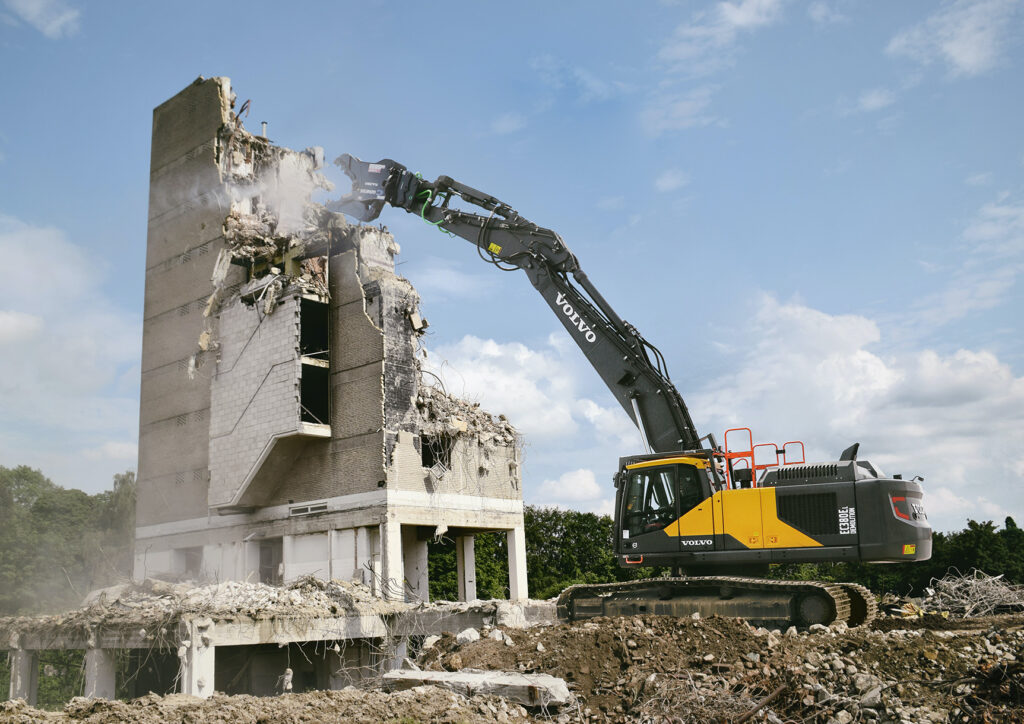Demolition becomes necessary for various reasons, including remodeling, new builds or constructions, dealing with hazardous materials or pests, etc.
Contrary to popular opinion, a reputable demolition company won’t just arrive at the site to break things up. Many safety and professional concerns must be assessed before the demolition process begins. A part of the concerns is the Dos and Don’ts of a demolition project.
If you’re hiring a demolition contractor for your remodels, new builds, or other reasons, keep these dos and don’ts in mind as they could be the difference between an excellent service and a safety issue with liability spread across the board.
Demolition Planning
Demolition projects aren’t anything like we see in the movies. They aren’t careless. If anything, they are a controlled tear-down of structures to meet the desired specification.
For most experienced and professional demolition contractors, demolition planning is the first major step before the equipment arrives on site. Planning ensures that all on-site and off-site factors, including specific demolition instructions, are planned for.
A typical demolition plan covers all of the following;
- The building or structure’s location
- The structure’s location with respect to surrounding buildings, roads, structures, public places like schools, etc.
- The structural support
- Demolition method analysis and statement showing the appropriate demolition sequence and method
- A health and safety plan recommending and adopting safety measures for protecting workers, the public, covered walkway, crash decks, and surrounding buildings.
- Demolition waste management plan
- Programmed demolition process
The Do’s of Demolition
Planning a demolition is just as important as planning any stage of the construction process. Below are the important dos of every demolition project.
Use The Correct Safety Equipment
Safety is one of the most important considerations when hiring and proceeding with demolition projects. There is always a risk of accidents, which could be due to falling objects, demolition debris, hazardous substances, or others.
It is important to have the correct safety equipment, from personal protective equipment like hard hats, safety goggles, appropriate clothing and boots, to the right equipment on the site. Workers are encouraged to wear safety gloves and maintain the highest safety standards at every point during the demolition process.
Use The Correct Demolition Tools And Equipment
The right contractor will have the right tools and equipment to complete the job. It is recommended that you hire the right contractor with the right tools for the project.
Identify And Assess All Potential Risks
Risk analysis is an important foundation step when planning a demolition project. Understanding the project’s risks can help better plan risk mitigation and environmental protection.
Before kick starting the project, identify the risks – which may be hazardous materials like asbestos or tight work areas, and decide how best to address those risks.
Ensure That The Task Is Doable With The Available Resources
A demolition project cannot be left half undone. Before starting, ensure that you have the financial and professional capacity to see the project through without delays.
Have Backup Plan For Delays And Setbacks
Not all projects go as planned. It is important to identify common factors that can set the project back or delay it and find alternative plans to address them. If renting equipment, make provisions for equipment damages, replacement equipment, or mechanical faults.
The Don’ts of Demolition
Here are some mistakes you should avoid making as you plan your demolition project.
Allowing Unprotected Persons Close To The Demolition Site
Safety is a huge concern in the construction industry, especially as it has the highest number of work-related deaths. Keeping those without appropriate safety gear away from the demolition site is important. This can save their lives and help avoid accidents.
Allow Distractions On Site
Demolition projects are very sensitive and should be treated as such. It is important to ensure attention to detail at every step of the project. Distractions, in any form, should be discouraged. This can improve worker safety and help kick against site accidents.
Use Tools Or Equipment Without A Proper Mastery
Mastery is an important factor in the construction world. It is important for demolition contractors to only assign tools and equipment to professionals with the right training and experience.
Workers, operators, and technicians without the requisite skills should be discouraged from operating tools and equipment on-site.
Deploy Noisy Equipment Or Vehicles At Night Or Early In The Morning
Demolition projects can sometimes be noisy. It is important to prevent noise pollution and complaints by avoiding using noisy equipment or machines early in the morning or late at night.
Overwork Yourself Or Your Employees
Stress can mess with a person’s cognitive ability and cause accidents at work. It is important to encourage rest while carrying out demolition activities. This reduces the risk of work-related accidents as well as health problems.
Following the above tips can significantly improve your demolition project’s outcome while avoiding accidents and other damages.







